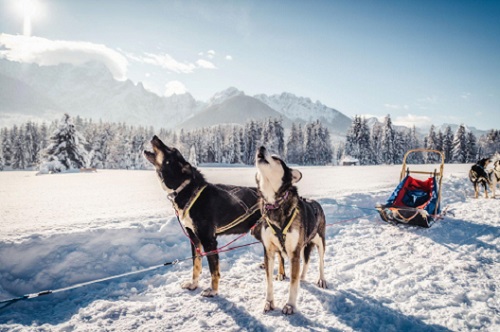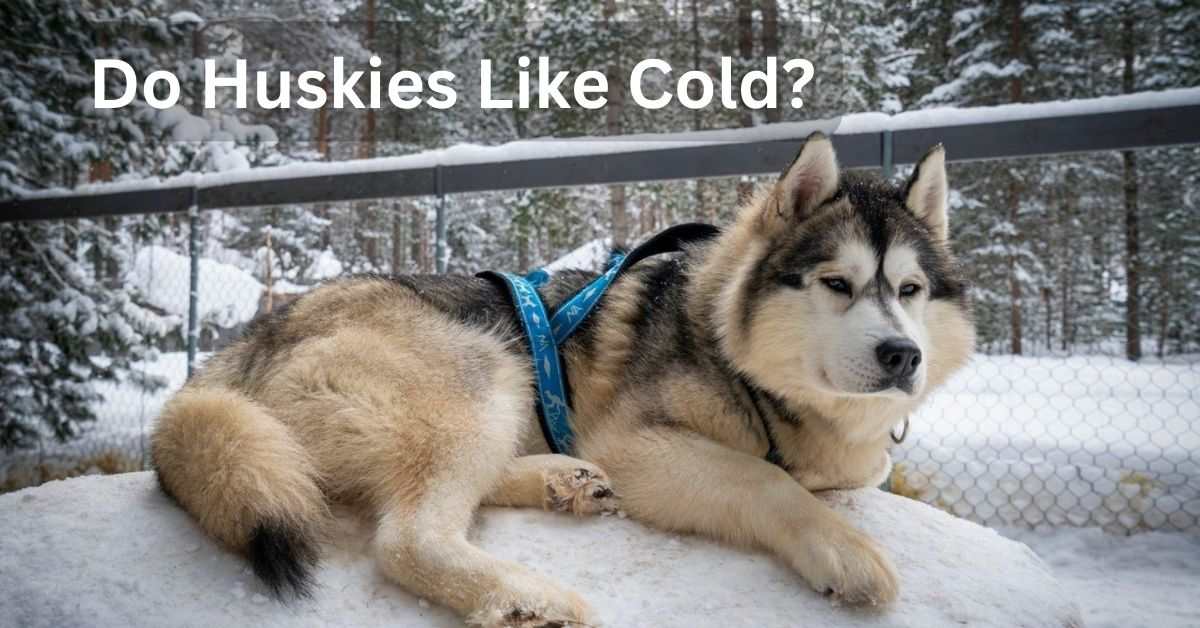With their striking blue eyes and majestic appearance, Huskies have long been associated with snow and cold weather. Their thick double coats, erect ears, and bushy tails suit them well suited for frigid climates.
But have you ever wondered why huskies seem to have an affinity for snow? This article will explore the fascinating relationship between huskies and snow, delving into their instincts, physical adaptations, and how to ensure their safety and well-being in cold temperatures.
Why Do Huskies Like Cold?
Huskies have a rich ancestral heritage that traces back to sled-pulling dogs from Siberia. These dogs were bred to thrive in freezing temperatures, enabling them to navigate vast snowy landscapes.
Their love for the cold can be attributed to their instincts and biological adaptations. Huskies have a thick double coat that acts as insulation, keeping them warm even in sub-zero temperatures.
Additionally, they possess a high metabolism, allowing them to generate and maintain body heat more efficiently than many other breeds.
How Cold Can Husky Tolerate?
Huskies can tolerate a wide range of temperatures thanks to their natural adaptations. They are more comfortable in colder temperatures and can tolerate temperatures as low as -60°F (-51°C) for short periods.
However, it’s important to note that individual huskies may have different tolerances, and factors such as wind chill and humidity can also impact their comfort level.
How Cold Too Cold For A Husky?
While huskies are well-suited for cold climates, it’s important to understand their limits. Extreme cold, particularly with high wind chill factors, can threaten huskies.
Temperatures below -20°F (-29°C) may become dangerous for extended periods. Monitoring your husky’s behavior and noticing signs of discomfort is crucial.
Providing appropriate shelter and limiting their exposure to extreme cold is always advisable.
Signs If Your Husky Is Too Cold
Recognizing signs that indicate your husky may be too cold is essential. Some common signs include shivering, whining, lifting paws, seeking warmth, or exhibiting a hunched posture.
If you observe any of these behaviors, you must immediately warm up your husky and ensure their well-being.
Keeping Your Husky Safe In Cold Temperatures
To keep your husky safe in cold temperatures, there are several precautions you can take. A suitable shelter with insulation, such as a well-insulated dog house, can protect them from the cold and wind.
Always ensure access to fresh water, as dehydration can occur even in cold weather. Providing proper nutrition and monitoring your husky’s weight is important, as a healthy weight contributes to maintaining body heat.
Do Husky Puppies Get Cold?
Husky puppies are more vulnerable to cold temperatures due to their smaller size and less-developed coat. They can lose heat quickly and may struggle to regulate their body temperature effectively.
It’s essential to provide extra warmth and monitor their comfort closely. Sweaters or coats designed for puppies can help keep them warm during chilly outings.
How Long Can Huskies Stay Outside In The Cold?
The duration huskies can stay outside in the cold depends on various factors, including temperature, wind chill, and individual tolerance. Generally, huskies can withstand colder temperatures for longer than many other breeds.
However, observing your husky’s behavior and signs of discomfort is important. If they exhibit signs of distress or discomfort, bringing them indoors or providing a warm shelter is best.

What Climate Suits The Husky Best?
Huskies thrive in colder climates and are better suited for regions with consistently low temperatures. They feel most comfortable in areas with moderate to heavy snowfall and cooler temperatures throughout the year.
However, with proper care and precautions, huskies can adapt to different climates as long as their well-being is prioritized.
FAQs
While huskies are better suited for colder climates, they can adapt to warmer regions properly. It’s crucial to provide them with shade and plenty of fresh water and avoid leaving them outside during the hottest parts of the day.
Huskies have a self-cleaning coat that naturally repels dirt and debris. However, regular brushing helps remove loose fur and promotes healthy circulation. Trimming the hair between their paw pads can also prevent ice and snow buildup.
It’s generally not recommended to leave huskies alone outside in extremely cold temperatures. They are social animals and thrive on human companionship. If they need to be outside for short periods, ensure they have proper shelter and fresh water, and monitor them closely.
Yes, huskies have a strong working instinct and often enjoy activities such as sledding or skijoring. These activities allow them to engage their instincts and provide mental and physical stimulation.
Conclusion
In conclusion, huskies have a natural affinity for snow and cold weather due to their genetic makeup and historical role as sled-pulling dogs. Their thick double coat, efficient metabolism, and adaptations enable them to thrive in cold climates.
However, it’s important to understand their limits and provide proper care and shelter in extreme conditions. You can enjoy the magical bond between huskies and the snowy landscapes they love by ensuring their safety and well-being.
